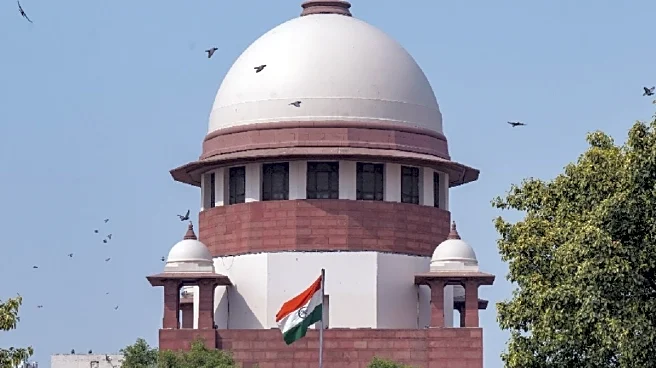The Supreme Court on Monday said that it may consider striking down Talaq-e-Hasan, a form of divorce under which a Muslim man can end a marriage by saying “talaq” once a month over three months. The Bench
of Justices Surya Kant, Ujjal Bhuyan and N Kotiswar Singh also suggested that the issue may be referred to a Constitution Bench of five judges. The Court asked all parties to submit brief notes outlining the broad legal questions requiring adjudication.
The judges observed that because the practice affects society at large, judicial intervention may be necessary. Justice Kant, as quoted by Bar and Bench, remarked that a civilised society cannot allow practices that undermine the dignity of women. “Whatever best religious practice we follow, is this what you allow? Is this how the dignity of a woman is upheld?” he asked.
PIL filed
The case stems from a Public Interest Litigation (PIL) filed in 2022 by journalist Benazeer Heena, who has sought a declaration that the practice is unconstitutional as it violates Articles 14, 15, 21 and 25 of the Constitution. Her petition also calls for gender- and religion-neutral procedures for divorce.
Heena alleged that her husband divorced her through a Talaq-e-Hasan notice issued via a lawyer after her family refused to pay dowry, despite her reporting harassment by her in-laws. She said the police informed her that such a divorce was permissible under Sharia law. She also faced challenges proving her marital status, complicating her child’s school admissions, even though her husband had remarried.
Court questions husband’s actions
Senior Advocate MR Shamshad, appearing for the husband, argued that sending a notice through a representative is common in Islamic practice. However, Justice Kant questioned why the husband could not communicate directly if he intended to follow the religious procedure faithfully. The Bench directed that he must appear before the Court next week and adhere to the prescribed practice.
The Court also asked Heena’s counsel to file a detailed application listing the issues and directions sought.
Justice Kant noted that while Heena, a journalist, could approach the Supreme Court, there are countless women from marginalised backgrounds who might be suffering silently. “What about those unheard voices living in remote areas?” he remarked.
Heena’s plea argues that marriage and inheritance laws evolve with time and that unilateral extra-judicial divorce is inconsistent with human rights and equality. The petition contends that the practice is discriminatory since only men can exercise it and stresses that Article 25’s protection of religious freedom is not absolute.
Judicial observations on ‘Talak’
Interestingly, in August 2022, a different Bench had held that Talaq-e-Hasan was not prima facie improper and cautioned against using the litigation to advance any agenda. However, with the current Bench signalling a possible review by a larger Bench, the future of the practice may hinge on the constitutional questions now being framed.


/images/ppid_a911dc6a-image-177096083331989693.webp)








/images/ppid_59c68470-image-17709601817922335.webp)

/images/ppid_59c68470-image-177096014992760454.webp)
/images/ppid_59c68470-image-177096003864659573.webp)